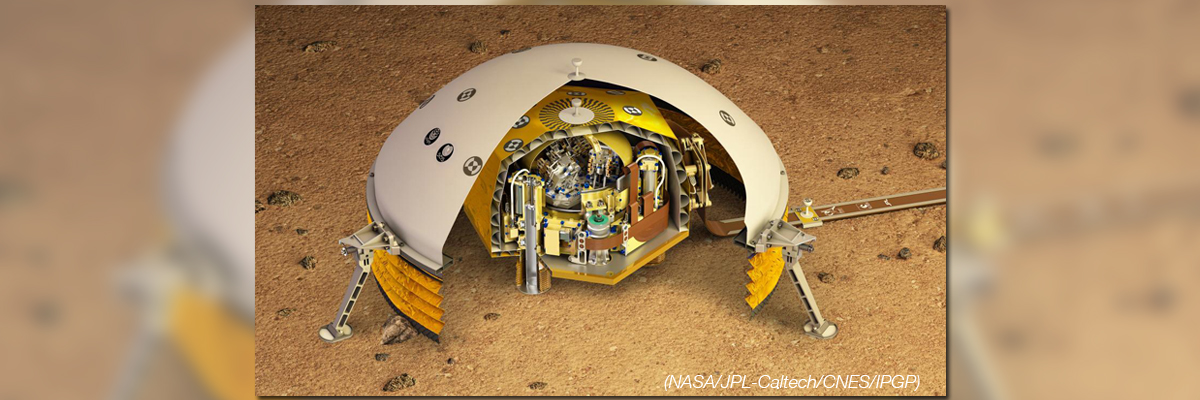26 de April de 2023
An international research team, led by the University of Bristol and including researcher Martin Schimmel from Geosciences Barcelona (GEO3BCN-CSIC), has detected seismic waves travelling through the core of Mars for the first time.
Published in the scientific journal PNAS (Proceedings of the National Academy of Sciences of the US), the research reveals that Mars’ core is not just a ball of iron, but also contains significant amounts of sulfur, as well as small amounts of hydrogen, carbon, and oxygen. This discovery provides valuable insights into the formation and evolution of the red planet.
Dr Jessica Irving, Senior Lecturer in Earth Sciences at the University of Bristol and lead author of the study, stated, “We’ve made the very first observations of seismic waves traveling through the core of Mars. Two seismic signals, one from a very distant marsquake and one from a meteorite impact on the far side of the planet, have allowed us to probe the Martian core with seismic waves. We’ve effectively been listening for energy traveling through the heart of another planet, and now we’ve heard it.”
The research team used data from NASA’s InSight lander, a robotic spacecraft designed to study the interior of Mars, to compare seismic waves traveling through the planet’s core with those in its shallower regions, and to model properties of its interior. The InSight lander deployed a broadband seismometer on the Martian surface in 2018, enabling the detection of seismic events such as marsquakes and meteorite impacts.
The multi-disciplinary team of scientists, including seismologists, geodynamicists and mineral physicists, used observations of two seismic events located in the opposite hemisphere from the seismometer to measure the travel times of seismic waves that passed through the core relative to seismic waves that remained in the mantle.
Originally scheduled to last for just over one Mars year (equivalent to two Earth years), the research mission was extended by NASA despite challenges such as Martian storms accelerating dust accumulation and reducing power to the InSight lander. This allowed for the continued collection of geophysical data, including signals of marsquakes, until the end of 2022.
Reference
J. Irving et al. “First observations of core-transiting seismic phases on Mars”. PNAS, 2023.

